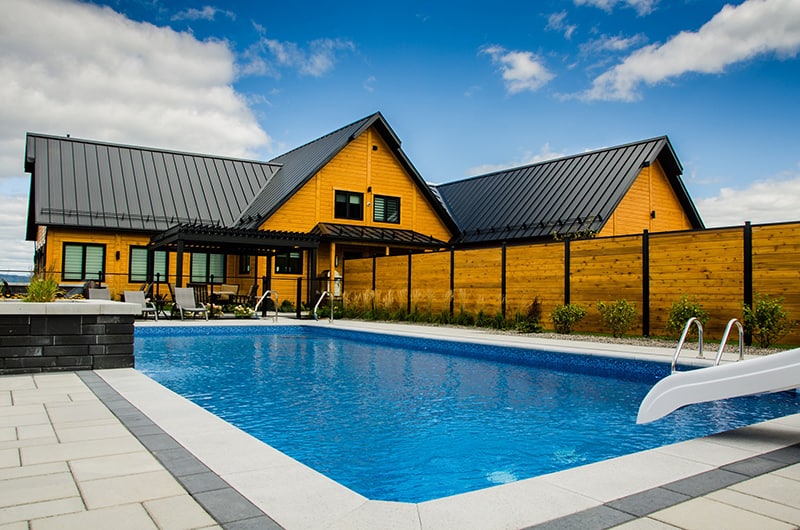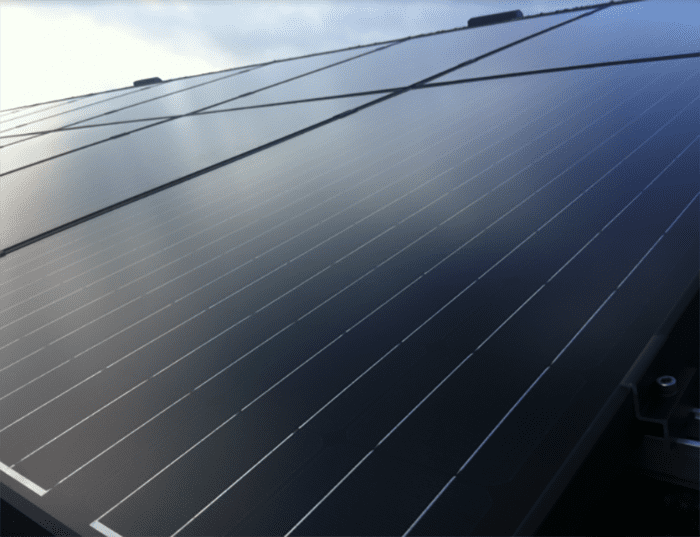 No one likes to jump into a freezing cold pool. Even in the warm California sunshine, splashing into frigid waters can turn what should be a relaxing experience into a scream-ridden scramble for the ladder while you re-enact the last scene from Titanic. But pool heaters are costly, and so are the annual energy bills associated with them. The price of keeping your pool warm with a gas heater can reach upwards of $2,000 per year.
No one likes to jump into a freezing cold pool. Even in the warm California sunshine, splashing into frigid waters can turn what should be a relaxing experience into a scream-ridden scramble for the ladder while you re-enact the last scene from Titanic. But pool heaters are costly, and so are the annual energy bills associated with them. The price of keeping your pool warm with a gas heater can reach upwards of $2,000 per year.
So, are you doomed to wade into the waters of the Arctic Sea every time you want to cool off? Not if you look toward renewable solar heating, which can keep you doing laps in luxury and turn your pool into a temperate heaven.
How Does Solar Pool Heating Work?
Heating your pool with solar takes a number of steps, but the process is affordable, efficient, and worthwhile in the end. What’s more, while it’s great to understand this process, it’s all automated, so you only have to wade into the waters and enjoy that temperate affordable perfection.
Most solar pool heating systems are made up of a solar collector, filter, pump, and flow control valve. These components all work together to seamlessly heat pool water to the desired temperature with no wasteful environmental impact.
The water is first pumped through the filter before it enters the solar collector. Once there, it is heated and then returned to the pool. There are many different kinds of collectors, but for pool heating in California, you’ll most likely require an unglazed system, which includes no glass covering. These are typically composed from heavy-duty rubber or plastic.
How Much Do Solar Pool Heaters Cost?
Glazed solar panels cost far more than their unglazed counterparts. Thankfully, in places like California, glazed heating panels aren’t necessary as they’re only beneficial when used to heat water in below freezing temperatures. This allows California homeowners to save big on hardware costs.

How Much Does Solar Pool Heating Save?
The US Department of Energy estimates that the yearly cost for a Los Angeles homeowner to heat their pool with gas power is $2,904. That information was based off of a sample scenario featuring a 1,000 square-foot outdoor pool heated by an 80% efficient natural gas heater at $0.80 per therm.
A solar heating system priced at $5,500 would pay for itself within two years. In that second year, the homeowner would save $308. But going forward after that, we’re seeing huge savings worth thousands of dollars every single year. (More on the pros and cons of solar panels at PowerScout.com)
But how efficient is it? An unglazed solar system can easily heat a Southern California pool to temperatures from 78 to 85 degrees Fahrenheit between the months of April and October. From November to March, the temperature would likely be a bit lower, but those losses can be diminished through the use of a pool cover, which reduces nighttime heat loss.
Solar pool heating panels last, on average, for up to 20 years. So that’s 17 years’ worth of heating cost savings. When you look at our Los Angeles home from before, with gas heating costs of $2,904 per year, you’re looking at savings of up to $49,368 over the lifetime of your system.
Is Solar Pool Heating Good for the Environment?
Solar heating is wonderful for the environment in the same way that standard photovoltaic solar power systems are. The heating panels convert the sun’s rays to heat, which warms your water without the use of fossil fuels. This helps to decrease your carbon footprint and control the over use of fossil fuels that would ordinarily be burned while using a gas heater.
Solar pool heaters also greatly help to reduce the amount of carbon dioxide released into the atmosphere as a result of gas powered heating systems. This aids in the worldwide effort to stop the spread of global warming and make our world a more renewable place.
These solar heating systems also make advancements in the realm of energy efficiency, as they utilize the pump that is already installed in most pools. When you look at energy efficiency rates as compared to electric, gas, and heat pump systems, solar far exceeds the competition.
A Smart Investment
California homeowners could stand to save huge amounts of money and aid environmental efforts to stop global warming by switching their pool heating needs to solar power. When you look at a payback period of only two years, coupled with a lifetime savings of nearly $50,000, it makes the switch to solar pool heating a no-brainer.
Heated pools are a luxury item that has, until recently, been costly in annual bills and from an environmental standpoint. By switching to solar you can enjoy all the luxury of a heated pool with none of the burden.
